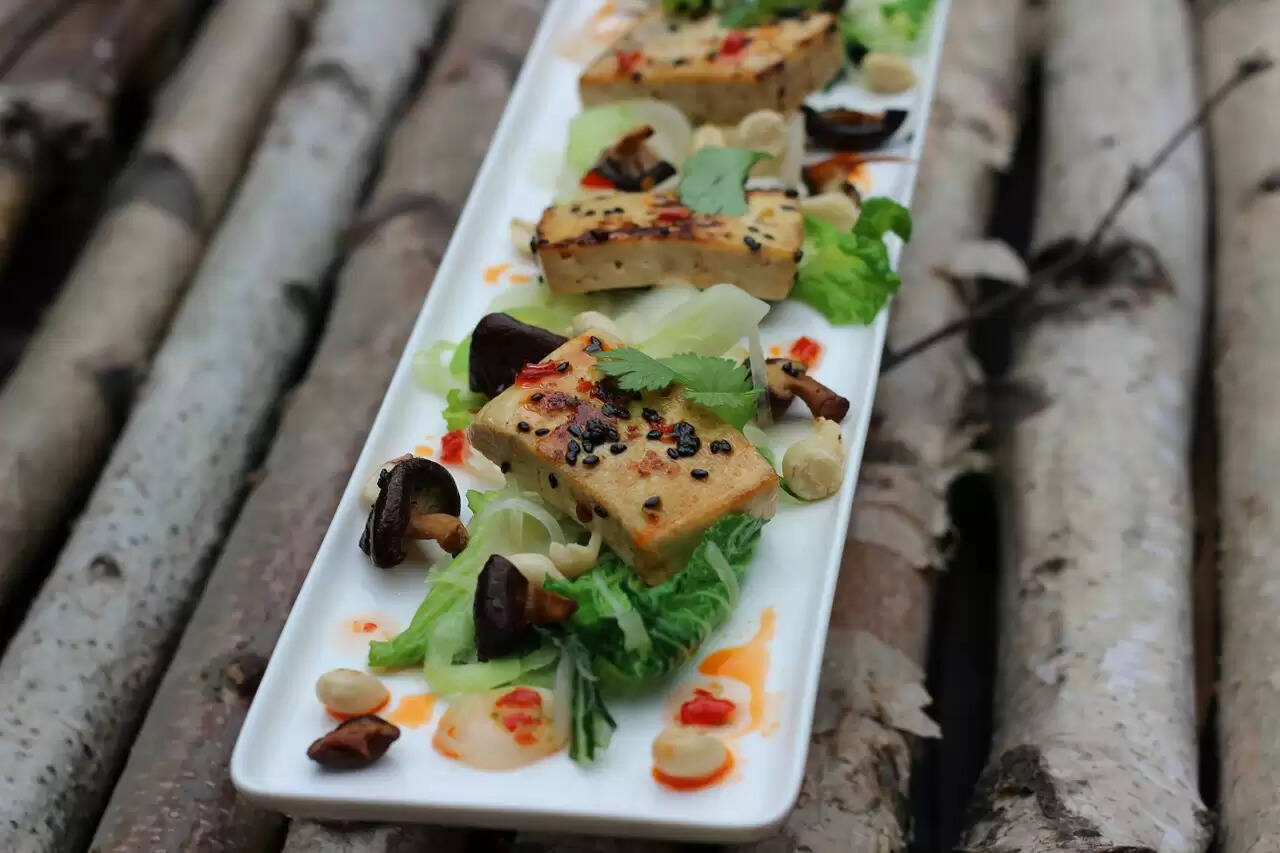7 high protein foods other than eggs

Protein is vital for the human body and it is known as a building block for muscles. As a matter of fact, the name comes from the Greek word proteos which means ‘primary’ when translated in English.
Proteins aid muscle growth, make our skin look bright and beautiful, and help our bodies grow healthy nails and hair. Proteins are also heavy and take a longer time to digest, and do not cause sugar spikes as simple carbohydrates do.
A such primary source of protein is an egg. One small egg contains 6 grams of proteins and essential nutrients such as eye-protecting antioxidants lutein and zeaxanthin, and choline. Fish and meat are also high source of protein. Chicken breast contains 26 grams of proteins per 3 ounces, 4 ounces of salmon has 27 grams of protein, and Ground beef contains 23 grams of proteins per 3 ounces.
Apart from these, there are seven other delicious high protein foods that one can add to his/her diet:
- Tofu
Tofu is a vegan food prepared from condensed soy milk and is pressed into solid white blocks in a process that is the same as cheesemaking. China is the first country where Tofu was originated.
It is a vegetarian and vegan powerhouse protein. Along with the protein, Tofu has all the eight vital amino acids that our body needs. It also contains essential fats, carbohydrates, and many vitamins and minerals, including zinc, vitamin B1, copper, and magnesium. Firm Tofu adds protein to soups and stir-fries, whereas Silken Tofu is best for smoothies.
Three ounces of Tofu has 8g of proteins in it.
- Quinoa
Quinoa is a protein-rich whole grain that is highly popular in the United States but is harvested by the local peoples in the Andes Mountains of South America for over 5,000 years. Quinoa seeds are gluten-free and higher in protein than any other grain. NASA used this nutritious food to feed astronauts on long-duration space missions.
These seeds contain all the nine vital amino acids and are also low in fat content hence proved to be an excellent food for weight loss.
One cup of cooked Quinoa seeds contains about 8 grams of protein.
- Black Beans
Black beans, also called turtle beans, are classified as legumes. Black beans are the digestible seeds of the plant that have a rugged, shell-like appearance. These beans contain high protein and fiber content and many other vital vitamins and minerals that benefit the human body. Black beans proved to be high in protein when used in tacos filling.
You can even whir them into dips or stir them into soup. Black beans are beneficial for strengthening bones and contain quercetin and saponins, that protects the heart.
A half-cup of cooked beans contains 8 grams of protein.
- Cheddar Cheese
Cheddar Cheese, also called cheddar, is the most favorite cheese of the UK’s people. It is a natural cheese that is relatively hard, off-white in color and has a sharp taste. It was initially produced in the English village of Cheddar in Somerset but is now available worldwide.
Cheddar Cheese in itself is a great snack that has got a bad rap for being high in saturated sodium and fat. One ounce of cheddar cheese contains 6.5 grams of protein, which is much more than a single egg’s protein content.
- Chickpea pasta
Chickpea Pasta, made from organic lentils and chickpeas, is a protein-rich food and low in fat. It makes them a healthy and tasty inclusion to any meal. This pasta promotes a healthier microbiome and better digestion.
Chickpea portions of pasta are also rich in fiber that reduces the risk of certain chronic diseases and reduces the risk of obesity too. However, Chickpea’s taste is not the same as regular pasta because it is made from beans with a little heartier texture but serving it with a spicy sauce makes a yummy dinner.
Two ounces of Chickpea pasta contains 14 grams of proteins.
- Peanut Butter
Peanut butter is a true example of humble and classic food paste. It is made using ground, dry-roasted peanuts that deliver a nice boost of protein to noodles, smoothies, oatmeal, and toast.
Some extra ingredients also amend the texture or taste, such as emulsifiers, sweeteners, and salt. People in many countries consume Peanut butter as a protein-rich snack.
Two tablespoons of Peanut butter contain around 7-8 grams of protein.
- Sprouted Grain Bread
When the name bread comes to our mind, it’s impossible to think of it as a protein source. Whole-wheat slices of bread contains around 3-5 grams of protein per slice, whereas a piece of sprouted grain will provide you with 8 grams of protein.
Grain Bread also contains nutrients, fibers, Vitamin B, Vitamin C, Beta-carotene, and folate. Sprouting also decreases antinutrients, making the nutrients in the grains more readily available in our bodies.
Medical Disclaimer: The information and reference materials contained here are intended solely for the general information of the reader. Patients and consumers should review the information carefully with their professional health care provider. The information is not intended to replace medical advice offered by physicians. You should consult your physician before beginning a new nutritional or fitness program.
.jpg)
